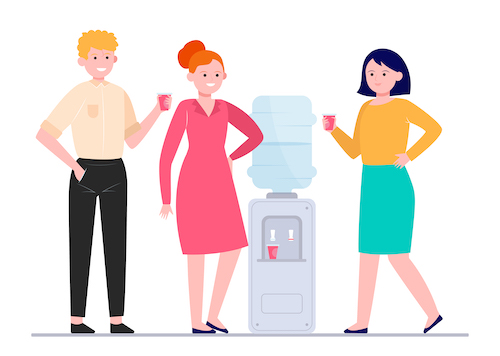Pandemic restrictions forced a lot of changes to our work lives and some changes may be adopted permanently. It won’t be tomorrow, and it may not happen next week, but eventually there will come a point when our lives will return to normal. But what exactly will this new normal look like post COVID-19?
Many Australian companies have moved to a Working from Home (WFH) model. Experts believe a significant number of these newly-at-home workers will stay there long term.
Does it make sense to have an office anymore?
While office culture may have changed over the last few decades, some believe they will be completely rethought and overhauled after this pandemic.
People used to think that offices were crucial for culture, productivity and securing the best possible talent. Large firms would compete intensely for every prime piece of office space and real estate, not just for kudos among the big boys but as a way to ensure they had the best people working for them.
Benefits Of Face To Face Interaction
Despite the obvious benefits of Zoom meetings and video conferencing, multiple studies show that videoconferencing is a poor substitute for face-to-face connection. According to Varun Ashok, Founder Mobile Experts, Australia’s leading phone repair chain, staff are less likely to feel like they are an involved member of the team on video calls.
“Although remote work has been touted as the future of the way we work during pandemic, I still believe in the value of face to face interactions. Sure, simple catch up meetings can be held online, but anything beyond that such as strategic workshops are always more productive in person. In addition, retail industry and socialising culture can’t be ignored,” Ashok says.
Interpersonal interactions can never be completely replaced by virtual experiences online because successful businesses rely on the camaraderie and trust that has been built through interpersonal relationships.
Water cooler talk is valuable
Water cooler talk can seem like a massive waste of time and money for many businesses in the context of our fast-paced business environment. There have been a number of studies where psychologists have confirmed that these kinds of casual conversations are essential for productivity and happiness in most workplaces.
This is because humans are ultimately social creatures. Once all of our other necessities are met, we as humans need to feel like we belong in our social circles. The office is one such circle.
Creativity Is Sometimes Better In Person
Speaking of creativity, the most effective method of maximising inspiration is to switch between working in a group and working alone. When you’re working alone, it’s almost like you’re stacking shelves of half thought out ideas onto shelves in your brain.
Lauren Sommer, Founder of Moi Moi Fine Jewellery, says, “It has definitely been a big change for our team but a positive one. Our team had always been designed to work in the office, as we believed the best results come together when our team collaborates and ideas are moulded together.”
Remote Working Does Have Value
While there may be downsides to remote working, it also provides a wide range of benefits. For example, companies have an opportunity to reap the benefits of changing their working methodology to increase sustainably in many areas.
As we all make our way through what will be known forever as one of great turning points and social dilemmas in our history, it certainly seems like remote working will be here to stay. The world is opening up again and companies and employers are planning their most effective and profitable paths back towards normality. Our new normal won’t be like the old normal. No matter how you look at it, working from home is going to be the norm as an integral part of business for the foreseeable future.







